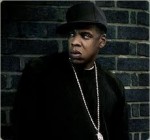
Is Jay-Z the link between soulless capitalism and misinterpreted artistry? He is an economic dynasty, who signed over his “creative output” in 2008 for $150 million, according to Time magazine. This followed numerous successful albums and lucrative tours.
Jay-Z is American culture. He represents more than a former drug dealer turned baller.
He’s more than a Marcy-Projects-to-mainstream-pauper-turned-prince.
He’s celebrated for more than having Beyonce, “the hottest chick in the game,” wearing his chain.
Even so, people with a little too much free time, overactive imaginations and spiritual fanaticism, see hell, fire and brimstone whenever the Yankee rapper’s face is displayed.
To some, Jay represents the occult.
The artist’s constant usage of black in branding and in music videos upset more than a few former fans. Never mind that associating the color black with all things dreadful and apocalyptic is way passé.
Yes, YouTube videos convey controversial allusions. His image does have a decidedly edgy appeal, which causes audiences to wonder if he is a self-made member of The Black Nobility, with ties to a New World Order.
His choice of the pyramid hand symbol could represent the Illuminati and its power structure, the street committee and avid bloggers say.
Never mind that Jay began in one of society’s most devalued groups: the Black poor.
It’s unlikely that hood life allowed him to access the supposedly superior secret society.
Sure, he embraces the provocative and recently dark-marketed island songstress Rihanna. The pair and a host of other entertainers were linked to Satanism.
Pop performers want a more evil population, or so neighborhood conspirators insist.
The phallic symbolism in his videos is the work of directors and marketing strategists.
Jay is undoubtedly involved in his image’s representation, but this whole mind-control-hell-party sounds too anti hip-hop to be Jay’s modus operandi.
Yes, he refers to himself as “Hov,” a shortened version of “Jehovah.”
People can literally interpret Jay as Jesus’ wannabe reincarnate and align him with layers of perverse pagans.
Or they can respect his unending grind and sustainability in a modern world of rap that discards its elders like senile great-grandparents.
While the definition of hip-hop varies among hip-hoppers, few will discount the effect Jay-Z had on the movement.
However, today’s rumor mill highlights bigger issues within minority communities, especially Black communities.
It highlights the prevalence of sensationalism. It highlights the fear of success.
Certainly many Jay-Z critics are more disturbed by his net worth than his soul’s weight.
The rapper always received criticism.
He challenged norms, reinforced stereotypes, retired, returned and remained on countless tongues throughout it all.
The pivotal penman could be using a conquer and kill strategy or poking fun at skeptics and testing boundaries.
Besides, even if he is in it, he can’t tell us.
Is Jay-Z the link between soulless capitalism and misinterpreted artistry?
He is an economic dynasty, who signed over his “creative output” in 2008 for $150 million, according to Time magazine. This followed numerous successful albums and lucrative tours.
Jay-Z is American culture. He represents more than a former drug dealer turned baller. He’s more than a Marcy-Projects-to-mainstream-pauper-turned-prince. He’s celebrated for more than having Beyonce, “the hottest chick in the game,” wearing his chain.
Even so, people with a little too much free time, overactive imaginations and spiritual fanaticism, see hell, fire and brimstone whenever the Yankee rapper’s face is displayed.
To some, Jay represents the occult. The artist’s constant usage of black in branding and in music videos upset more than a few former fans. Why people continue to associate the color black with all things dreadful and apocalyptic is beyond me.
YouTube videos convey controversial allusions. His image has a decidedly edgy appeal. Yet audiences wonder if he is a self-made member of The Black Nobility with ties to a New World Order.
His choice of the pyramid hand symbol could represent the Illuminati and its power structure, the street committee and avid bloggers say. Never mind that Jay began in one of society’s most devalued groups: the Black poor. It’s unlikely that hood life allowed him to access the supposedly superior secret society.
Sure, he embraces the provocative and recently dark-marketed island songstress Rihanna. The pair and a host of other entertainers have been linked to Satanism. Pop performers want a more evil population, or so neighborhood conspirators insist.
The phallic symbolism in his videos is the work of directors and marketing strategists. Jay is undoubtedly involved in his image’s representation, but this whole mind-control-hell-party sounds too anti hip-hop to be Jay’s modus operandi.
Yes, he refers to himself as “Hov,” a shortened version of “Jehovah.” People can literally interpret Jay as Jesus’ wannabe reincarnate and align him with layers of perverse pagans. Or they can respect his unending grind and sustainability in a modern day world of rap that discards its elders like senile great-grandparents.
While the definition of hip-hop varies among hip-hoppers, few will discount the effect Jay-Z had on the movement. However, today’s rumor mill highlights bigger issues within minority communities, especially Black communities.
It highlights the prevalence of sensationalism. It highlights the fear of success. Certainly many Jay-Z critics are more disturbed by his net worth than his soul’s weight.
The rapper has always been criticized. He’s challenged norms, reinforced stereotypes, retired, returned and remained on countless tongues throughout it all.
The pivotal penman could be using a conquer and kill strategy or poking fun at skeptics and testing boundaries. Besides, even if he is in it, he can’t tell us.
